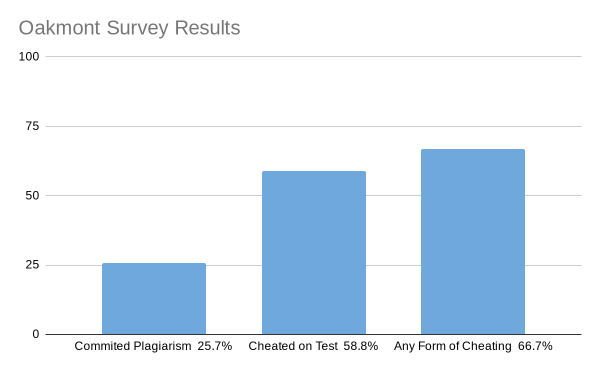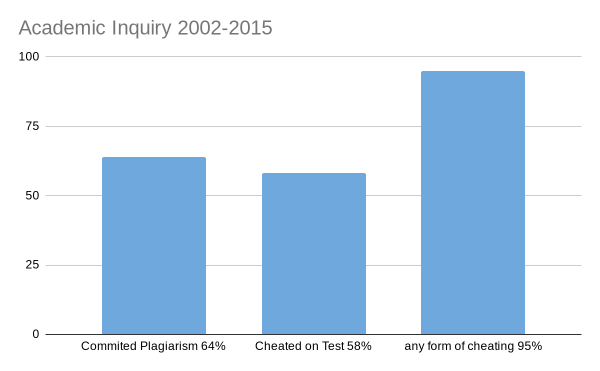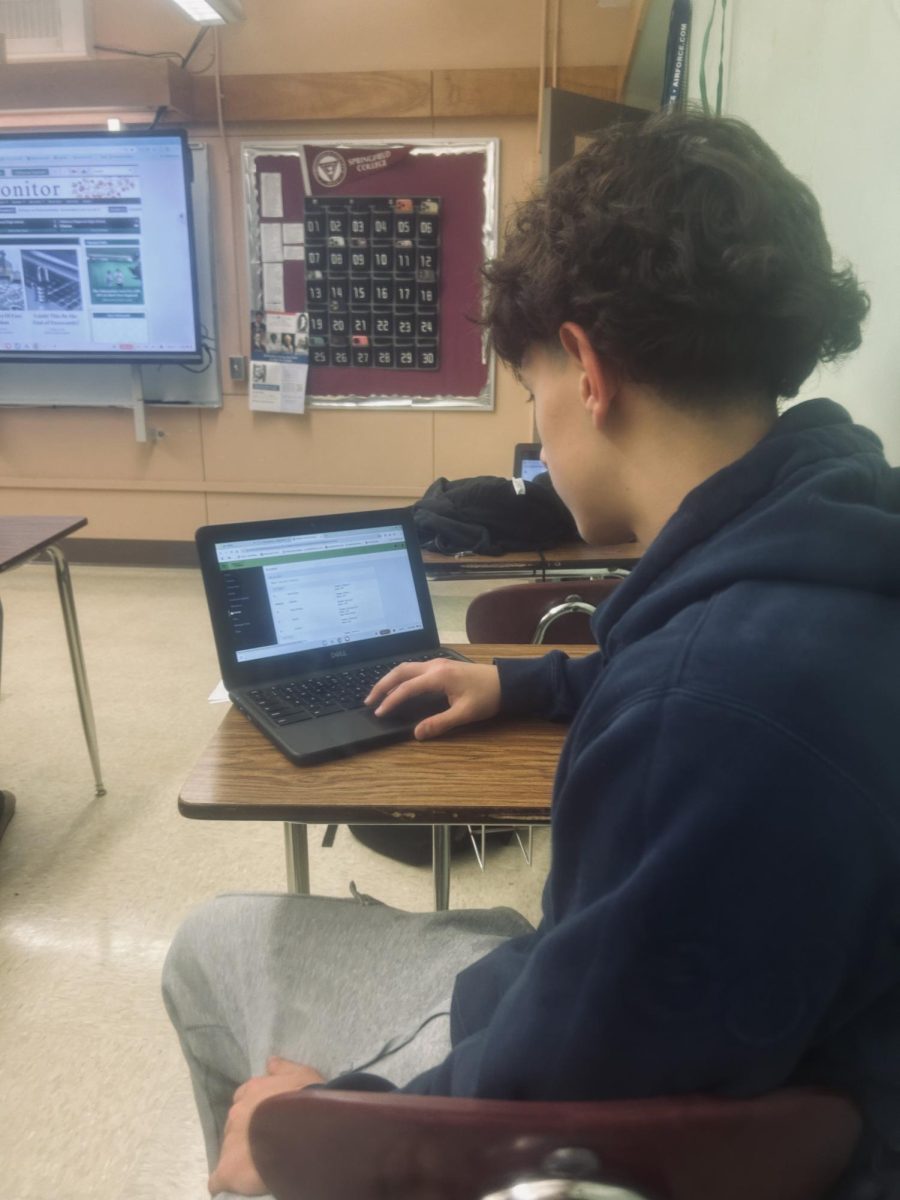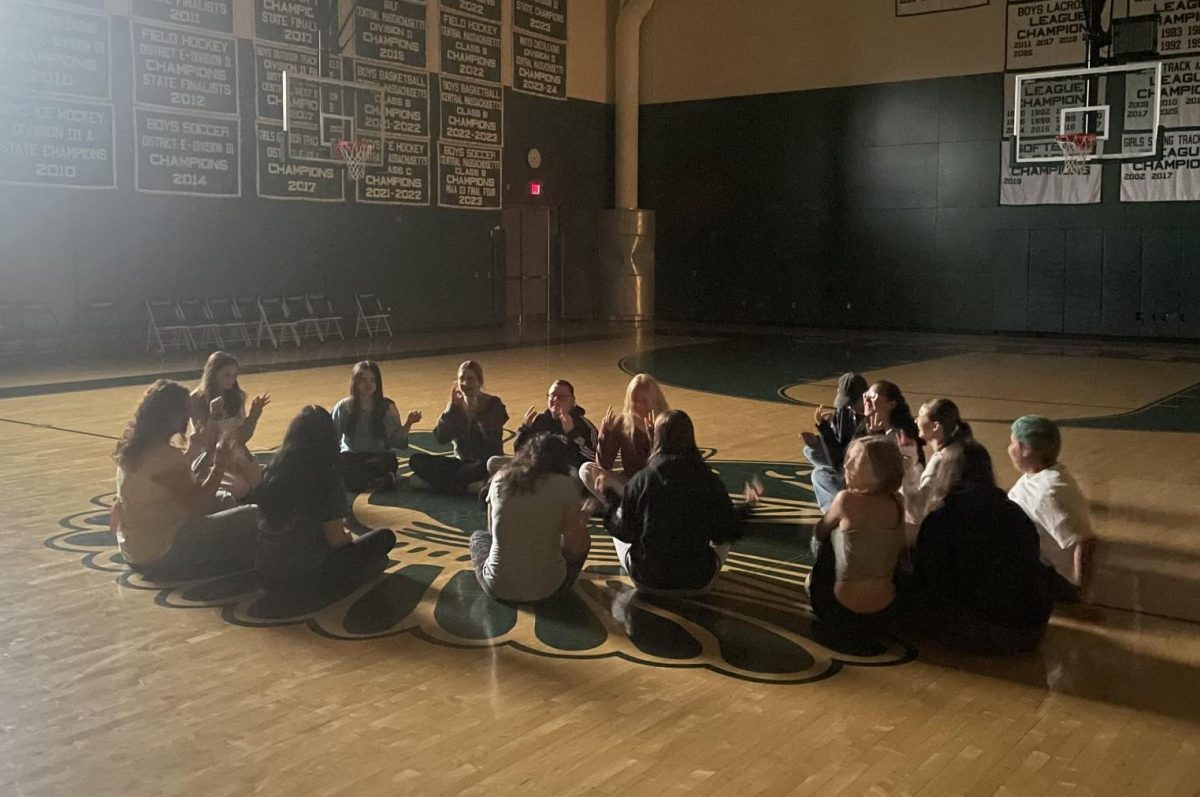Hasn’t everybody cheated during high school at least once in their life? Whether it was a quick glance over the shoulder during a test or a picture of someone’s homework to copy later. There are multiple forms of academic dishonesty and many ways to do it. Let’s take a deeper dive into cheating at Oakmont and worldwide.
Have you ever wondered how much cheating goes on throughout our school? Collected data from a number of Oakmont students showed the percentages of people who cheated overall within their high school career. Data included feelings toward cheating, how often it occurs, when, and how.
The results from the survey, out of 100 random Oakmont students, shows an interesting outcome. 66.7% confessed to cheating on ANY academic assignment and 21.6% say they cheat often. Cheating is witnessed daily by 33.3%, showing it is all around us. A large portion of others say they see it here and there, or weekly.
Based on the data, the top two assignments students will likely cheat on are homework and classwork. 76.5% answered homework, and 44.1% chose classwork. Proving these results, 82.4% admitted to copying someone’s homework or classwork in the past 2 years.
There are numerous techniques to cheat and find the responses you need. The top two methods thought to be common are copying others’ worksheets and looking online for answer keys. A close third was having eyes on others’ papers during tests or quizzes.
The frequent response (59.8%) to continuous cheating, according to the survey is that students have tried the work but do not understand the material. While, 40.2% picked, “did not HAVE time,” and 31.5% selected, “would not MAKE the time.”
Another similar question asked what the students’ rationale for cheating was. The top two outcomes were that 55.9% decided the teacher did not explain the material or there was an enormous amount of work assigned. The second most popular (63.4%) was, “cannot let their grades drop, so it is okay.” Are these justifiable reasons to cheat? Does guilt ever creep up on those afterward?
The short answer -not really. Remorse was questioned on the survey for cheating on a major assignment. The majority (71.3%) have NOT cheated on a MAJOR assignment. Out of the 28.7% that admitted to it, only 14.9% said they felt slightly bad, and nobody felt completely awful. The other 13.9% experienced no regret.
Does the 71.3% of students ever get bothered by those around them who cheat? From the gathered information, 46.9% of those who don’t cheat never feel annoyed when others do. 44.8% are sometimes annoyed depending on the situation, and lastly 8.3% are irritated quite often.
When asked whether they care if friends or if strangers copy off them, the difference was large. The results came out to be, if friends were to cheat off their papers, 80.4% would not care. However, if strangers or other classmates were to, only 42.2% wouldn’t mind. That is almost double the difference.
Research from a further source, other than just Oakmont, gathered data similar to ours. A study was conducted by Dr. Donald McCabe and the International Center for Academic Inquiry, 2002-2015 for cheating. The survey comprised of responses from 70,000 students. The two graphs below compare Oakmont’s responses to Dr. Donald McCabe’s. 

Technology nowadays makes not doing the work even easier. Just type in a question and you’ll receive a reply. Or take a picture and put it into Photomath and you never need to learn it. Now there is AI and Chatgtp writing whole essays and all you are required to do is change a couple of sentences. Cheating is one of those undeniable things almost every kid has done, and one of the main reasons is because of how easy it has become. Cheating is laid out before our fingertips, and is such a powerful temptation whether you cheat or not.
















